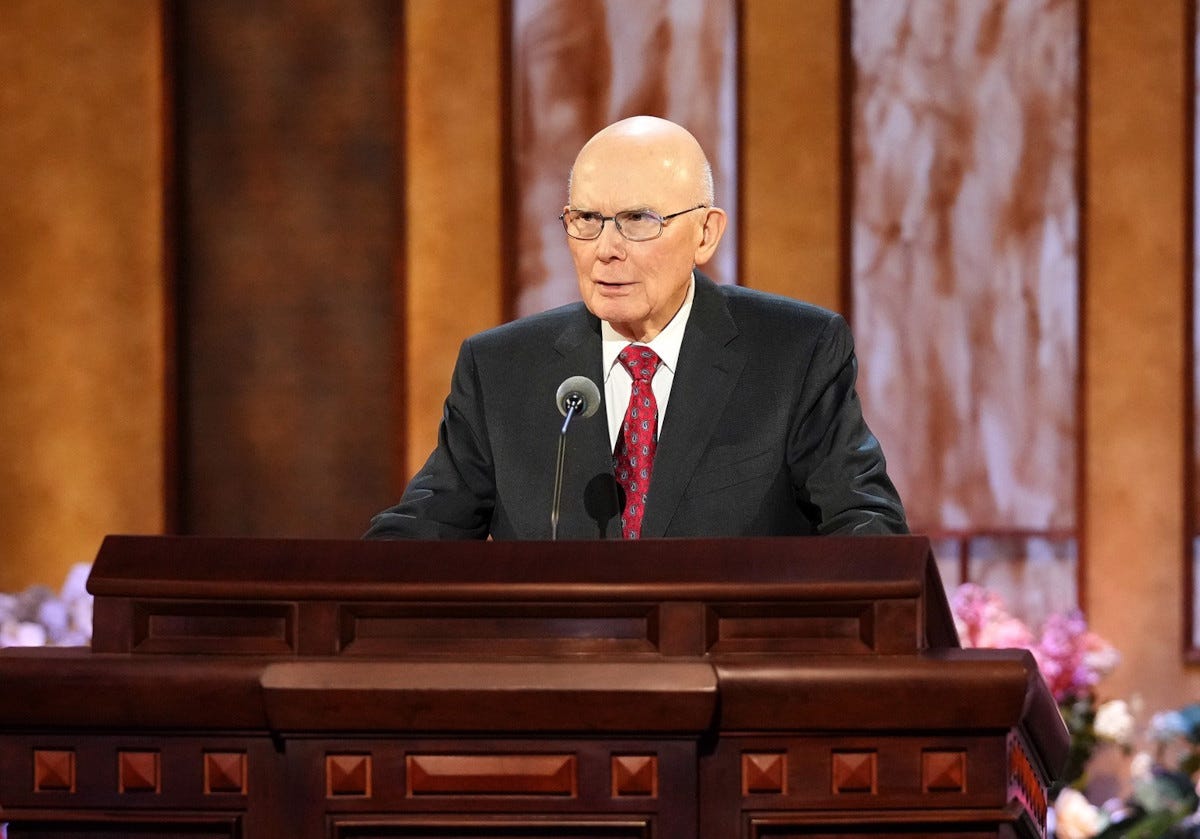Update: As expected, hardliner on LGTBQ issues advances to top post in LDS church
Dallin H. Oaks, former jurist and educator, formally named president and prophet
Oct. 14, 2025 update: Promising to “press forward with this great work,” longtime apostle and former jurist and education leader Dallin H. Oaks assumed the top post in the Church of Jesus Christ of Latter-day Saints this morning.
An announcement of the ascension, which makes Oaks known as …



